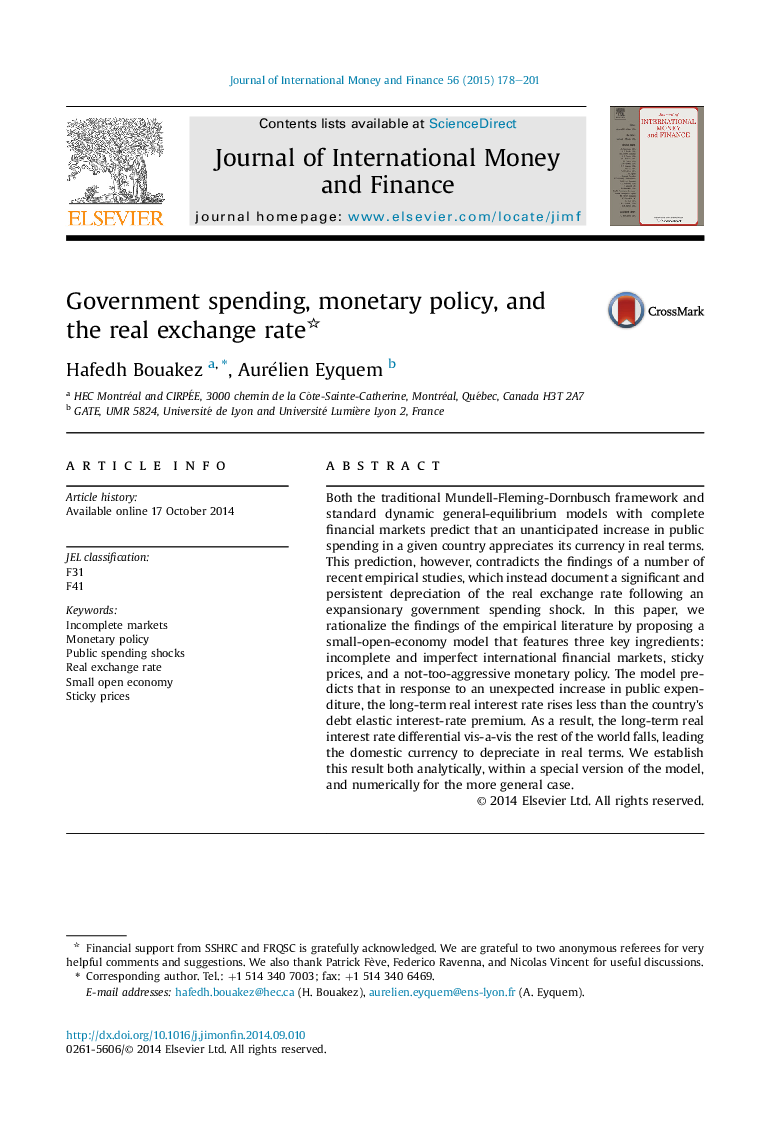| Article ID | Journal | Published Year | Pages | File Type |
|---|---|---|---|---|
| 963358 | Journal of International Money and Finance | 2015 | 24 Pages |
Abstract
Both the traditional Mundell-Fleming-Dornbusch framework and standard dynamic general-equilibrium models with complete financial markets predict that an unanticipated increase in public spending in a given country appreciates its currency in real terms. This prediction, however, contradicts the findings of a number of recent empirical studies, which instead document a significant and persistent depreciation of the real exchange rate following an expansionary government spending shock. In this paper, we rationalize the findings of the empirical literature by proposing a small-open-economy model that features three key ingredients: incomplete and imperfect international financial markets, sticky prices, and a not-too-aggressive monetary policy. The model predicts that in response to an unexpected increase in public expenditure, the long-term real interest rate rises less than the country's debt elastic interest-rate premium. As a result, the long-term real interest rate differential vis-a-vis the rest of the world falls, leading the domestic currency to depreciate in real terms. We establish this result both analytically, within a special version of the model, and numerically for the more general case.
Related Topics
Social Sciences and Humanities
Economics, Econometrics and Finance
Economics and Econometrics
Authors
Hafedh Bouakez, Aurélien Eyquem,
